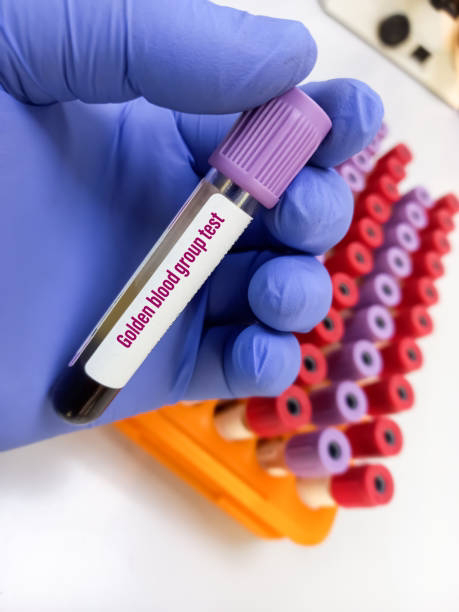What is Golden Blood?
Golden blood is one of the rarest blood types. Typically, Rh antigens are present on the surface of red blood cells. This unique blood type does not contain any of the 61 Rh antigens, making it extremely rare. Only 50 people globally have been registered with this "golden blood" type, which results from a rare genetic mutation.
What Conditions Lead to This Phenomenon?
Golden blood occurs in individuals who undergo a rare genetic mutation. Let's understand the process:
Rh Blood Group System: The Rh blood group contains several antigens, mainly RhD, RhCE, and RhAG proteins. These antigens reside on the surface of red blood cells and are responsible for maintaining their proper structure and function.
Types of Golden Blood:
1) Mutation in the RHAG Gene: One primary cause of the Rh null phenotype is a mutation in the RHAG gene. The RHAG gene encodes the Rh-associated glycoprotein, which is essential for the expression of Rh antigens. A mutation in this gene can lead to the complete absence of all Rh antigens on the red blood cell surface.
2) Amorphic-Type Rh Null: This type occurs when there are mutations in both RHCE genes inherited from each parent, coupled with a deletion or inactivation of the RHD gene. This results in the total absence of Rh antigens because the mutations prevent the normal production of Rh proteins.
3) Regulatory-Type Rh Null: In this type, the mutations occur in genes that regulate the expression of the Rh complex rather than directly in the Rh genes themselves. These regulatory mutations lead to a failure in the production or expression of the Rh proteins.
Effect on the Individual with Golden Blood
When an individual possesses such blood, it can have both advantages and disadvantages:
Advantages:
Universal Donor: One advantage is that individuals with golden blood can donate their blood to virtually anyone, including those with other rare blood types.
Medical Discoveries: By studying golden blood, researchers can gain insights into the Rh blood group systems, potentially leading to significant medical breakthroughs.
Disadvantages:
Limited Donor Availability: Despite being universal donors, the rarity of golden blood means that those who need it can only receive it from others with the same blood type. With a global population of around 8 billion, there are only about 50 individuals with golden blood.
Health Risks: Individuals with golden blood are at risk of moderate hemolytic anemia due to structural differences in their red blood cells. This can lead to symptoms such as fatigue, paleness, and shortness of breath.
Medical Monitoring: Due to potential health issues and the difficulty in finding compatible blood for transfusions, individuals with Rh null blood require careful medical monitoring, especially during surgeries or other medical procedures that might necessitate a blood transfusion.
Conclusion
The discovery of Rh null, or golden blood, presents a fascinating glimpse into the complexities of human genetics and blood typing. While it offers the remarkable benefit of universal donation, its extreme rarity poses significant challenges for those who possess it. Understanding and researching this rare blood type can not only help those with Rh null blood but also contribute to broader medical knowledge and innovation.













0 Comments